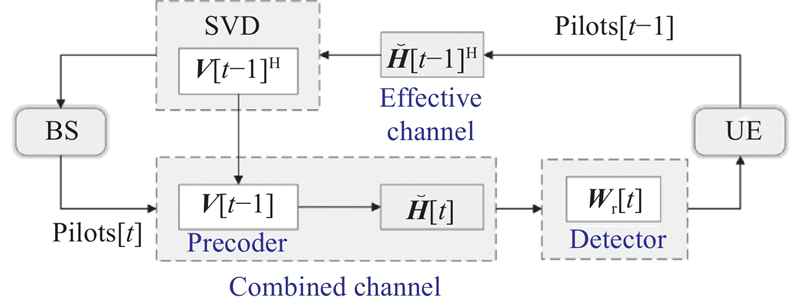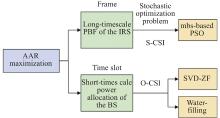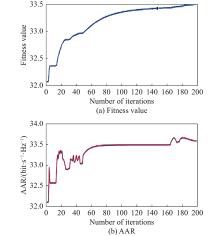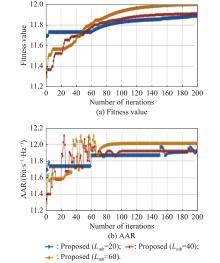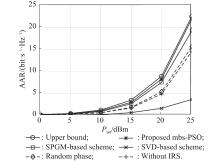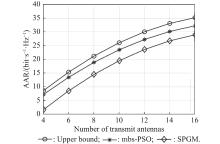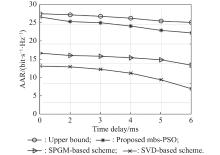| 1 |
WU Q Q, ZHANG R Towards smart and reconfigurable environment: Intelligent reflecting surface aided wireless network. IEEE Communications Magazine, 2019, 58 (1): 106- 112.
|
| 2 |
DI RENZO M, ZAPPONE A, DEBBAH M, et al Smart radio environments empowered by reconfigurable intelligent surfaces: how it works, state of research, and the road ahead. IEEE Journal on Selected Areas in Communications, 2020, 38 (11): 2450- 2525.
doi: 10.1109/JSAC.2020.3007211
|
| 3 |
ZHANG S W, ZHANG R Capacity characterization for intelligent reflecting surface aided MIMO communication. IEEE Journal on Selected Areas in Communications, 2020, 38 (8): 1823- 1838.
doi: 10.1109/JSAC.2020.3000814
|
| 4 |
ALWAZANI H, KAMMOUN A, CHAABAN A, et al Intelligent reflecting surface-assisted multi-user MISO communication: channel estimation and beamforming design. IEEE Open Journal of the Communications Society, 2020, 1, 661- 680.
doi: 10.1109/OJCOMS.2020.2992791
|
| 5 |
DE ARAUJO G T, DE ALMEIDA A L F, BOYER R Channel estimation for intelligent reflecting surface assisted MIMO systems: a tensor modeling approach. IEEE Journal of Selected Topics in Signal Processing, 2021, 15 (3): 789- 802.
doi: 10.1109/JSTSP.2021.3061274
|
| 6 |
KIM J B, CHOI J W, CIOFFI J M Cooperative distributed beamforming with outdated CSI and channel estimation errors. IEEE Trans. on Communications, 2014, 62 (12): 4269- 4280.
doi: 10.1109/TCOMM.2014.2364834
|
| 7 |
ZHAO M M, WU Q, ZHAO M J, et al Intelligent reflecting surface enhanced wireless networks: two-timescale beamforming optimization. IEEE Trans. on Wireless Communications, 2020, 20 (1): 2- 17.
|
| 8 |
ZHAO M M, LIU A, WAN Y, et al Two-timescale beamforming optimization for intelligent reflecting surface aided multiuser communication with QoS constraints. IEEE Trans. on Wireless Communications, 2021, 20 (9): 6179- 6194.
doi: 10.1109/TWC.2021.3072382
|
| 9 |
LIU A, LAU V K N, ZHAO M J Online successive convex approximation for two-stage stochastic nonconvex optimization. IEEE Trans. on Signal Processing, 2018, 66 (22): 5941- 5955.
doi: 10.1109/TSP.2018.2871389
|
| 10 |
MEHANNA O, SIDIROPOULOS N D Channel tracking and transmit beamforming with frugal feedback. IEEE Trans. on Signal Processing, 2014, 62 (24): 6402- 6413.
doi: 10.1109/TSP.2014.2365762
|
| 11 |
GE Y H, ZHANG W L, GAO F F, et al Beamforming network optimization for reducing channel time variation in high-mobility massive MIMO. IEEE Trans. on Communications, 2019, 67 (10): 6781- 6795.
doi: 10.1109/TCOMM.2019.2926464
|
| 12 |
YANG H J, ZHENG K, ZHAO L, et al Twin-timescale radio resource management for ultra-reliable and low-latency vehicular networks. IEEE Trans. on Vehicular Technology, 2019, 69 (1): 1023- 1036.
|
| 13 |
JIAN R L, CHEN Y Y, LIU Z, et al Hybrid precoding for multiuser massive MIMO systems based on MMSE-PSO. Wireless Networks, 2020, 26 (2): 1291- 1299.
doi: 10.1007/s11276-019-02187-0
|
| 14 |
BENEDETTI M, AZARO R, FRANCESCHINI D, et al PSO-based real-time control of planar uniform circular arrays. IEEE Antennas and Wireless Propagation Letters, 2006, 5, 545- 548.
doi: 10.1109/LAWP.2006.887553
|
| 15 |
KOKAI G, CHRIST T, FRHAUF H H. Using hardware-based particle swarm method for dynamic optimization of adaptive array antennas. Proc. of the NASA/ESA Conference on Adaptive Hardware and Systems, 2006: 51−58.
|
| 16 |
KHAN M H A, CHO K M, LEE M H, et al A simple block diagonal precoding for multi-user MIMO broadcast channels. EURASIP Journal on wireless communications and networking, 2014, 2014, 95.
doi: 10.1186/1687-1499-2014-1
|
| 17 |
NING B Y, CHEN Z, CHEN W J, et al Beamforming optimization for intelligent reflecting surface assisted MIMO: a sum-path-gain maximization approach. IEEE Wireless Communications Letters, 2020, 9 (7): 1105- 1109.
|
 ), Tiejun LYU1,*(
), Tiejun LYU1,*( ), Wei NI2(
), Wei NI2( )
)

